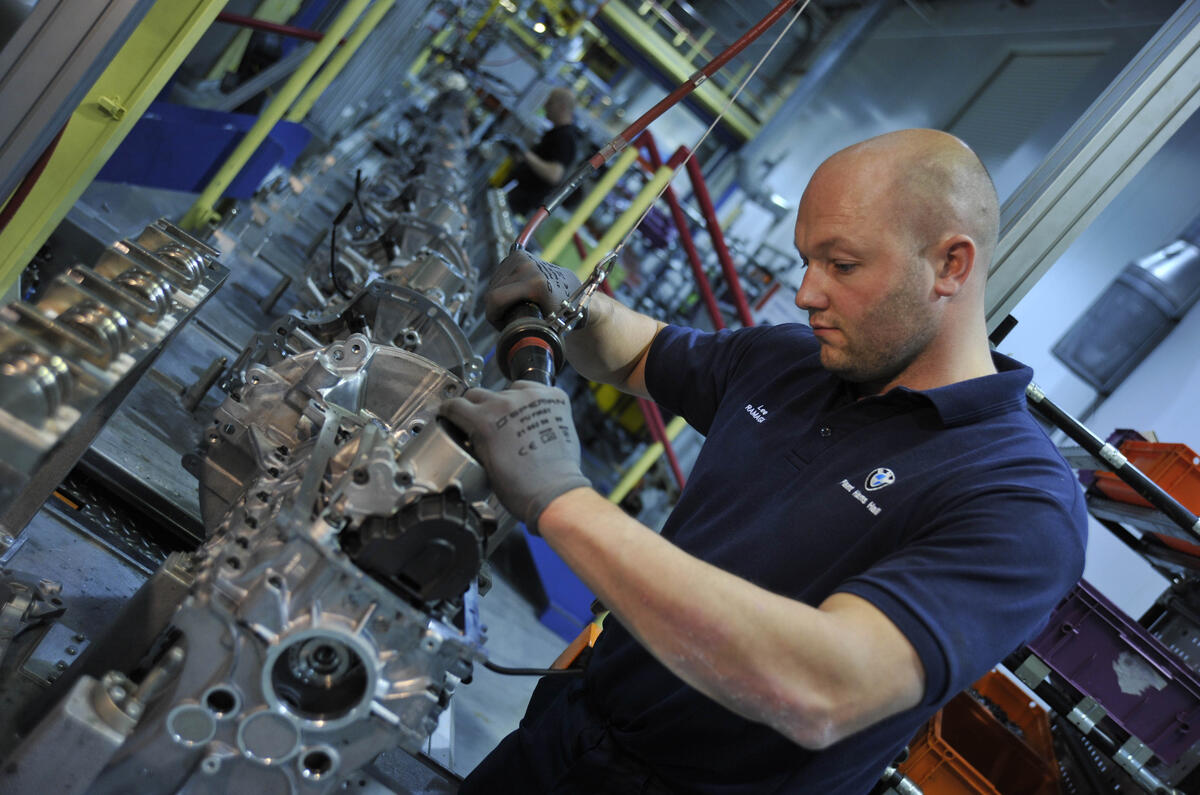BMW board member Ian Robertson has said the UK’s strong and growing levels of investment from the German brand are due to a company philosophy of production following sales.
The UK is currently BMW’s fourth-largest market and this was a key factor in the firm’s decision to invest £500 million in its UK operations last year – expansion that includes, it has today been announced, production of the i8 hybrid supercar’s three-cylinder turbo engine at its Hams Hall facility.
"The UK premium market accounts for 23-25 per cent of the UK market: the 3-series is a regular top 10 best-seller," This is, said Robertson, natural hedging: "we build a lot in Pounds as well as sell a lot in Pounds."
BMW directly employs around 7500 people in the UK, said Robertson, including 5000 in the ‘golden triangle’ of MINI Oxford, Hams Hall and its Swindon pressing facility. "Include the dealer network and this goes up to 65-70,000: factor in the supply chain and it goes up to nearly 100,000."
Robertson says the refocus on manufacturing by both the last government and the current one, which is another factor partly behind BMW’s decision to invest, is an important step in rebalancing the UK economy.
"People point to the strength of Germany, but this is because its economy has always been balanced, with manufacturing," he said, adding that the renewed focus on manufacturing must continue here.
Robertson recognised the huge transition the UK car industry has gone through from its heyday in the 1960s to the hard times of the late 1970s and 1980s to its subsequent re-emergence.
"Investment was led by the Japanese but was followed by JLR, BMW and GM. The industry has come out stronger. It is going through a strong period right now – but we must not be complacent," he warned.
The UK is, however, at less risk from the overcapacity seen in mainland Europe at the moment, helped by decisions such as Ford pulling out of car manufacturing here in the 1990s.
He pinpointed France and Italy as having most overcapacity, and contrasted it with the US. Between 1985-2000, five million units of capacity were added by ‘transplants’ (satellite sites by foreign manufacturers such as BMW Spartanburg). "But five million units came out of the home industry. This has not happened in Europe," said Robertson.
He said the lack of free trade with some nations was a concern: "Argentina has a ‘$1 in, $1 out' policy. It means that to import cars, car manufacturers become involved in agricultural exports – exporting peanuts, red wine and so in – in order to sell cars that are not locally built.
"This is creating volatility in the automotive industry as nations fight for their share of automotive investment – and even local manufacturing may not be enough. The car industry is attractive as it rotates on a seven-year cycle for capital investment. Basically, it renews itself every seven years. Manufacturing is not enough for some countries."
Richard Aucock




Join the debate
Add your comment
He also fails to mention
He also fails to mention currency stability - god knows what will happen to the Euro over the next few years. If Germany goes back to being the DM it will suffer the same fate as the Japanese manufacturers are experiencing right now - their currency is so strong it means they are losing money on every car made in Japan and exported.
Even TV manufacturers like Sony are suffering the same fate as they can't compete with rivals like Samsung made in Korea.
Building in the UK avoids a lot of potential confusion as the £ is likely to stay more stable vs the Dollar and the Yuan.